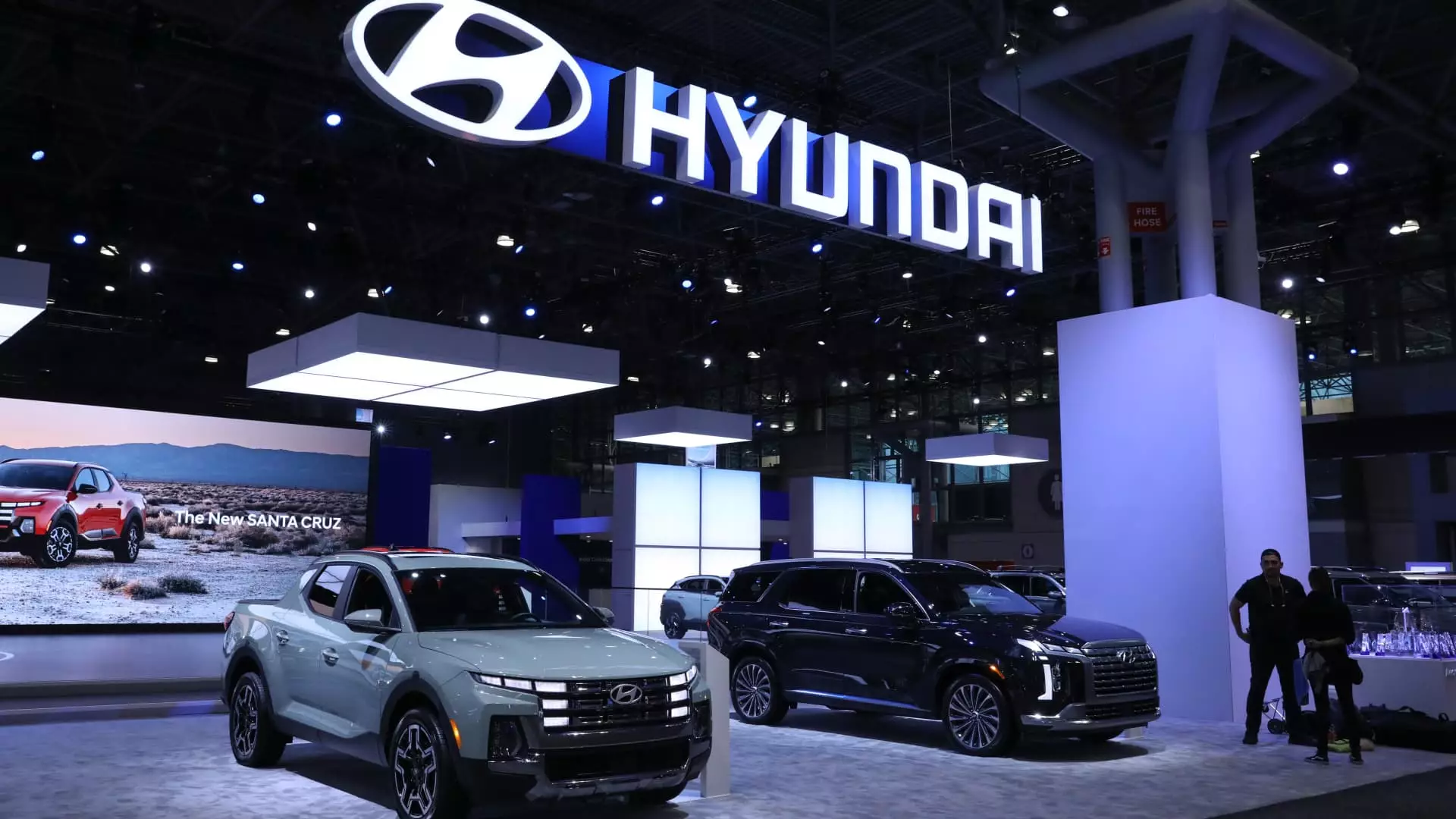In a significant and somewhat audacious move, South Korean auto giant Hyundai is poised to announce its staggering $20 billion investment in U.S. onshoring, with a prominent $5 billion steel plant slated for Louisiana. This facility is not just a symbol of Hyundai’s commitment to the American market but also a calculated bet on the future of electric vehicle (EV) production. By creating approximately 1,500 jobs, Hyundai aims not only to bolster its domestic operations but to secure a competitive edge against rivals, particularly Tesla. This investment comes at a critical juncture when the international trade landscape is fraught with uncertainties and looming tariffs.
Contextualizing the Decision
Hyundai’s investment is strategically timed. With President Trump pushing for the onshoring of manufacturing jobs, the announcement at the White House will likely play into a larger narrative of protecting American jobs from foreign competition. Hyundai’s Chairman, Euisun Chung, and Louisiana Governor Jeff Landry will underscore how essential this investment is for local economies and innovation. However, there is a darker undertone to this positivity; it reflects the pressures that foreign conglomerates are feeling to mitigate the impact of tariffs that could cripple their profitability.
The reality is that major international players, like Taiwan Semiconductor Manufacturing Company (TSMC) and Japan’s SoftBank, are also throwing their hats into the ring, announcing big plans to establish or expand their operations in the U.S. The race to avoid punitive tariffs has never been more pronounced, revealing the delicate balance of global trade and national interests. Hyundai’s CEO, José Muñoz, recently highlighted that heightened localization is now a crucial strategy to navigate this evolving economic landscape.
Competition and Economic Imbalances
While Hyundai has successfully established itself as a major player in the U.S. electric vehicle market, the complexities of trade between South Korea and the United States must not be underestimated. South Korea finds itself at the center of a growing trade deficit, as American exports are hampered by what some claim are exorbitant tariffs. Trump’s vocal criticism of South Korea’s tariff structure—alleging it’s four times higher than that of the U.S.—adds an additional layer of complexity to Hyundai’s operations.
Seoul’s rebuttal also complicates the narrative. The assertion that the effective tariff rate on U.S. imports stands at a mere 0.79% due to the free trade pact raises questions about whether these claims are merely political maneuvering. The discord around tariffs could lead more companies to consider whether the U.S. remains an attractive place for manufacturing, particularly in sectors poised for rapid innovation like electric vehicles.
Future Prospects and Implications
Hyundai’s decision to invest heavily in U.S. production reflects a broader trend of centrist economic thinking that seeks to harmonize both domestic job creation and international competitiveness. However, the gamble is not without its risks. The company is navigating a landscape that could shift overnight based on trade policies and international relations. The success of this initiative could serve as a bellwether for other foreign corporations on whether to deepen their investments in the U.S. market.
In a time of increasing economic nationalism, Hyundai’s investment raises critical questions about the future of global trade and its nuances. It embarks on a path not just to produce steel for electric vehicles but to reshape the landscape of U.S. manufacturing. As corporate titans and governments alike grapple with these intricate dynamics, Hyundai stands as a central player in an unfolding narrative that could redefine the contours of global commerce.

